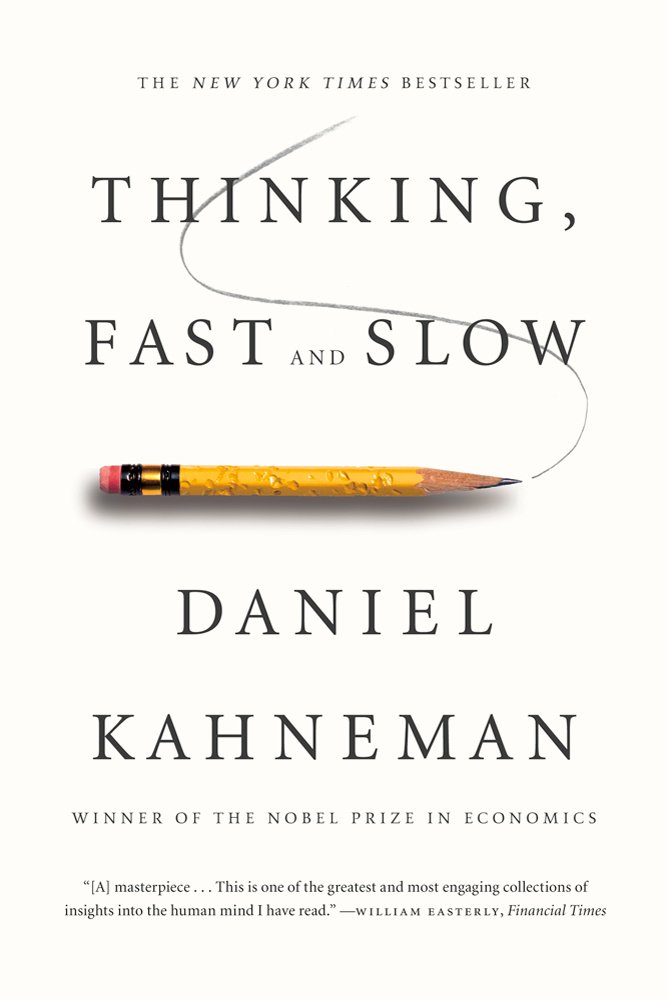I offered Thinking Fast and Slow by Daniel Kahneman a few months ago and this morning the reader made me read pages 200-1. It’s a great lesson about how luck plays an important role in startup creation, through the Google story. So I give you below the full extract.
“A compelling narrative fosters an illusion of inevitability. Consider the story of how Google turned into a giant of the technology industry. Two creative graduate students in the computer science department at Stanford University come up with a superior way of searching information on the Internet. They seek and obtain funding to start a company and make a series of decisions that work out well. Within a few years, the company they started is one of the most valuable stocks in America, and the two former graduate students are among the richest people on the planet. On one memorable occasion, they were lucky, which makes the story even more compelling: a year after founding Google, they were willing to sell their company for less than $1 million, but the buyer said the price was too high. Mentioning the single lucky incident actually makes it easier to underestimate the multitude of ways in which luck affected the outcome.
A detailed history would specify the Google’s founders, but for our purposes it suffices to say that almost every choice they made had a good outcome. A more complete narrative would describe the actions of the firms that google defeated. The hapless competitors would appear to be blind, slow, and altogether inadequate in dealing with the threat that eventually overwhelmed them.
I intentionally told this tale blandly, but you get the idea: there is a very good story here. Fleshed out in more detail, the story could give you the sense that you understand what made Google succeed; it would also make you feel that you have learned a valuable general lesson about what makes businesses succeed. Unfortunately, there is good reason to believe that your sense of understanding and learning from the Google story is largely illusory. The ultimate test of an explanation is whether it would have made the event predictable in advance. No story of Google’s unlikely success will meet that test, because no story can include the myriad of events that would have caused a different outcome. The human mind does not deal well with nonevents. The fact that many of the important events that did occur involved choices further tempts you to exaggerate the role of skill and underestimate the part that luck played in the outcome. Because every critical decision turned out well, the record suggests almost flawless prescience – but bad luck could have disrupted any one of the successful steps. The halo effect adds the final touches, lending an aura of invincibility to the heroes of the story.
Like watching a skilled rafter avoiding one potential calamity after another as he goes down the rapids, the unfolding of the Google story is thrilling because of the constant risk of disaster. However, there is an instructive difference between the two cases. The skilled rafter has gone through the rapids hundreds of times. He has learned to read the roiling water in front of him and to anticipate obstacles. He has learned to make the tiny adjustments of posture that keep him upright. There are fewer opportunities for young men to learn how to create a giant company, and fewer chances to avoid hidden rocks – such as a brilliant innovation by a competing firm. Of course there was a great deal of skill in the google story, but luck played a more important role in the actual event than it does in the telling of it. And the more luck was involved, the less there is to be learned.”


Well said. Humans are particularly good at making up stories in retrospect but in reality, those made-up stories often do not contain the exact cause of someone’s success and many’s successes can be attributed to pure randomness. I think one other book to read on this topic is called Fooled by Randomness.
The reason why this is important is that as Kahneman suggested that we have two modes of thinking, one fast and one low. Even for the sophisticated minds such as mathematicians or scientists in their daily decision-making process, they rely on more the fast process so they also underestimate how much randomness plays a role in story-telling which makes it even harder for us to find out the real cause of some event.